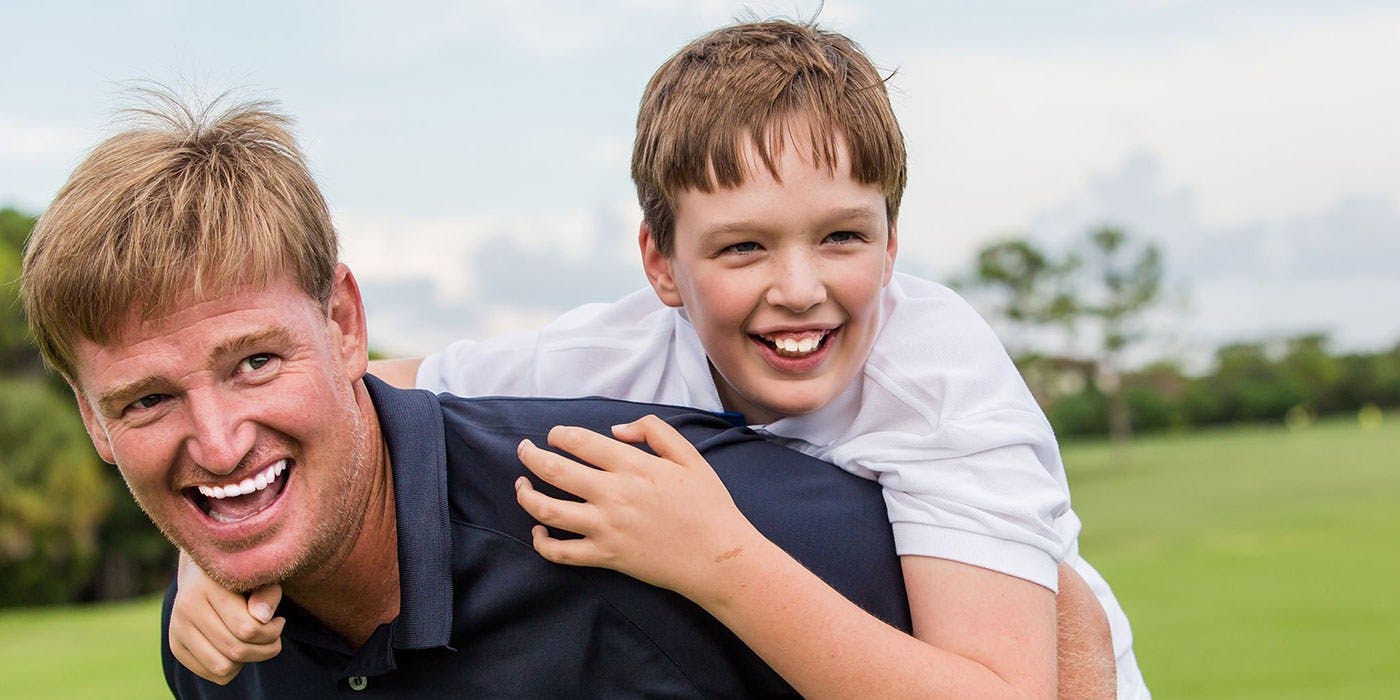The quest to understand and help those with Autism Spectrum Disorder (“ASD”) is a personal one for Els and his wife, Liezl. Their son, Ben, was diagnosed with ASD at age 5. At that time, they had yet to understand the practical value that Els’ career as a professional golfer could have on the health and well-being of their son and others like him. The personal experience inspired the family to establish the Els for Autism Foundation in 2009, leveraging Els’ media exposure and reach as a professional athlete to raise awareness of autism and share the family’s experiences with others.
ASD is a developmental disability characterized by significant social, communication and behavioral challenges for those diagnosed with the disorder. While it affects 1 in 59 children in the U.S., no two kids are affected in precisely the same way. Common traits include repetitive behaviors, different ways of learning and a strong reliance on daily routines.
“We are private people but also very much in the public eye,” explains Liezl Els, “and we recognized that starting our own Foundation would give us a platform to help raise funds and awareness around the world.”

As a 501(c)3 charitable organization, the Foundation’s mission is to be a global resource for people diagnosed with ASD. It develops and delivers programs to serve a range of needs for children and adults alike. Headquartered in Jupiter, Florida, the Foundation also serves as home to the Els Center for Excellence. The Center’s programs include a charter school as well as speech, physical and occupational therapy specifically tailored for those with ASD. The Els’ have seen their son directly benefit from the full range of offerings.
“Before we moved to Florida,” recalls Liezl Els, “we had to drag Ben out of bed to go to school. Now, he can’t wait. He says, ‘when the sun comes up, I go to school.’”
The Center is used to develop, implement and research best practices, and then disseminate the programs and findings globally via online resources and teleconferencing technology. This ability to implement outreach programs remotely has proven invaluable during the current Covid-19 pandemic which has forced the Center’s closure. The programming has been able to continue to serve the community during these challenging times.
“Using teleconferencing technology, Ben’s chorus group has been able to continue their rehearsals online,” explains Liezl Els, “and he loves seeing his music teacher and friends even while we are all social distancing.”
Another of the programs the Center offers is the Ernie Els #GameON Autism™ Golf Program, which is clearly inspired by Els’ love of the game. Team sports present a particular challenge for those with ASD due to the social and communication skills required to play most games. They often struggle to process language quickly and cannot necessarily pick up body language cues from teammates and therefore, individual sports are usually a better option for those with ASD. Golf, in particular, has many aspects to the game - repetitive motions and attention to detail – that can be calming for those with ASD.
“We have found that golf, as an individual sport, is a great tool for teaching impulse control, following instructions, communication and socialization,” explains Els. “These are all areas of deficit for individuals with ASD”, he adds.
Golf is also a great way to get people with ASD outside, engaging in physical activity and practicing skills that most of us take for granted. Els explains further: “#GameON Autism Golf is designed to build self-esteem and confidence in a fun, welcoming and supportive environment; encouraging participants to learn golf skills while practicing specific autism learning concepts in each golf session.” Developing comfort with basic skills such as making eye contact or taking instruction from different people while playing golf can help those with ASD to practice and absorb these necessary life skills and hopefully integrate them into their daily lives.
Els’ commitment to the Els for Autism Foundation and the importance of supporting initiatives that he cares about is one of the elements that drew him to a partnership with Clif Bar. “I only ever partner with companies where there is a sense of shared values,” says Els, “and I love the way Clif Bar does business, focusing on organic ingredients and an ethos of sustainability.” Equally, Els was drawn to the work of the Clif Bar Family Foundation and the way the organization supports a range of grassroots efforts related to environmental sustainability and climate change.
Els acknowledges that for a long time, nutrition was not something that golfers necessarily focused on and he learned the lesson that “food is fuel” the hard way: “you need the right food in order to stay the distance, keep your energy levels up, and basically play your best golf from the 1st tee to the 18th green,” explains Els. “Clif Bar does that job,” he adds, “which is why you’ll always find Clif Bars in my golf bag.
